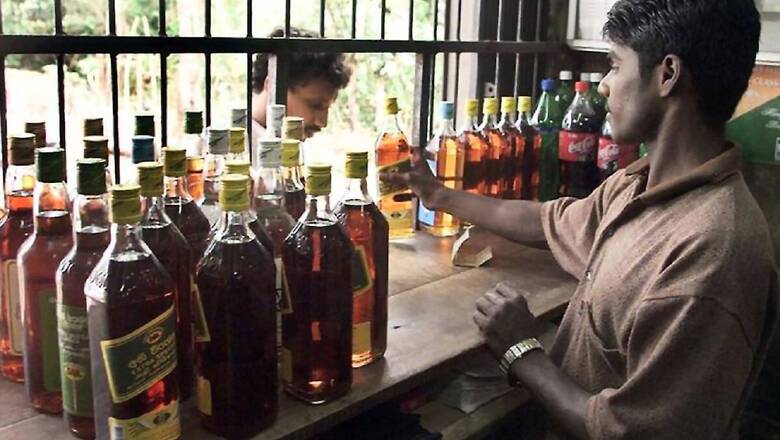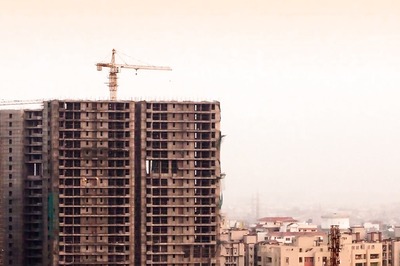
views
The permissible age for drinking or consumption of liquor in Delhi has been reduced from 25 years to 21 years. Making the announcement, Deputy Chief Minister Manish Sisodia, who also heads the finance ministry said, “In different states in the country, the permissible age for liquor consumption is different. Many times, questions have been asked about the high permissible age in Delhi, while in Noida, Uttar Pradesh, it is less. The Group of Ministers has recommended that in Delhi, the permissible age for liquor consumption should be the same as in Noida, UP.”
In Noida, the permissible age for the consumption of liquor is 21 years. The Deputy Chief Minister also said that for those below the age of 21 years, the government will bring in ‘age-gating’, so as to prohibit people below 21 years, if they are on their own from entering restaurants and bars selling liquor.
The major decision has been in the offing for some time after the expert committee and the Group of Ministers formed by the excise department to suggest reforms to eliminate all factors that encourage liquor mafia in Delhi submitted its report. The government has also received 14,700 suggestions from the public.
Sisoida said that from now onwards, in Delhi, the government will not own any liquor shops. Sisodia explained, “More than 50% of the liquor shops are owned by the government and these are home to a lot of corruption, such as brand pushing, theft of tax, etc. But the government earns more revenue from the 40% of privately-owned liquor shops than the government-owned liquor shops.”
Additionally, unlike the present situation, the government said no liquor shop will be opened in an area of less than 500 square feet, no counters will open towards the road, no sale will be outside, it will be the responsibility of the shop owner to maintain law and order, cleanliness in the premises and ensure that no open consumption of liquor happens. The Delhi government is also in the process of coming up with its own standards to check the production or sale of spurious liquor and ensure that the quality of the liquor available in Delhi matches international standards.
The Deputy Chief Minister said, “Liquor sold in Delhi will match international standards. To ensure that there is no low quality or spurious liquor, the Government will bring in its own international system of checking the quality.”
The Kejriwal government will also focus on the ‘equitable distribution’ of liquor shops across the capital, while committing to not opening any new liquor shops at the same time. No new liquor shops have been opened in Delhi since 2016.
The Deputy CM gave a detailed presentation of the distribution of liquor shops in the capital with colour coding. Sisodia pointed out the red parts to show the areas in Delhi that are unserved or underserved and the blue parts that are overserved. “If you look at Delhi, either some parts are overserved or the majority of the parts are unserved or very poorly underserved which is why the liquor mafia has been able to flourish,” said Sisodia.
In 79 of the 272 wards in Delhi, do not have a single liquor shop, 45 have just one, some have two, the Deputy Chief Minister said, adding that while 58% of Delhi was either unserved or underserved, another 20% are overserved. Highlighting the uneven distribution of liquor shops in the capital, Sisodia said that 50% of the shops are in just 45 wards. But it was not just about the unequal distribution of liquor shops, it was also the skewed revenue collection. Delhi’s Deputy CM pointed out that 50% of revenue was coming from 189 shops in 46 wards which indicated that in other areas, there has been a “theft of revenue”.
Listing out measures taken by the excise department to bring things under control, Sisoida said that in the past two years, 7,09,000 bottles of illicit liquor have been confiscated, 1,864 FIR were filed against illicit liquor business, 1,939 people have been arrested in the past two years, 1,014 vehicles linked to the illegal liquor mafia seized.
Sisodia said that this, however, was just the tip of the iceberg as there were about 2,000 illegal liquor outlets in Delhi which run from houses and godowns. “To put a stop to all this, a new policy has been formulated,” Sisodia said.
“Reforms are being brought in with the aim that there is no theft of taxes, under no circumstance in Delhi non-duty paid liquor would be sold, and we hope that the benefit would reach restaurants and industry, and will reduce crimes in the capital,” the Deputy CM said.
Sisodia emphasized that the government will also gain in terms of revenue collection. “We expect the revenue to grow by 20% compared to the trend of 5% per year. Our estimate is that revenues would increase from anything between Rs 1,500 crore to Rs 2,000 crore in a year,” he said.
The new excise policy will come into effect this year itself.
Read all the Latest News, Breaking News and Coronavirus News here



















Comments
0 comment